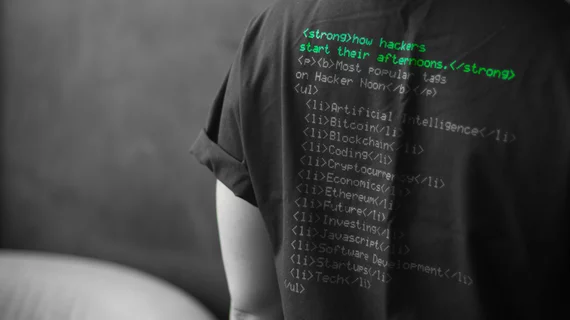Change Healthcare cyberattack: A recap and update in 10 quotes
1. ‘There are indications that Change Healthcare has made a $22 million extortion payment to the infamous BlackCat ransomware group. However, the cybercriminal who claims to have given BlackCat access to Change’s network says the crime gang cheated them out of their share of the ransom, and that they still have the sensitive data Change reportedly paid the group to destroy.’
—Brian Krebs, investigative cybersecurity journalist (“BlackCat Ransomware Group Implodes After Apparent $22M Payment by Change Healthcare,” Krebs on Security)
2. ‘Change Healthcare can confirm we experienced a cybersecurity issue perpetrated by a cybercrime threat actor who has represented itself to us as ALPHV/Blackcat. We’ve made progress in providing workarounds and temporary solutions to bring systems back online in pharmacy, claims and payments. We continue to be proactive and aggressive with all our systems, and if we suspect any issue with the system, we will immediately take action.’
—UnitedHealth Group (“Information on the Change Healthcare Cyber Response,” UnitedHealthGroup.com [March 5])
3. ‘If Change did pay [a $22M ransom], it’s problematic. It highlights the profitability of attacks on the healthcare sector. Ransomware gangs are nothing if not predictable: If they find a particular sector to be lucrative, they’ll attack it over and over again, rinse and repeat.’
—Brett Callow, ransomware-focused researcher with security firm Emsisoft (“Hackers Behind the Change Healthcare Ransomware Attack Just Received a $22 Million Payment,” Wired)
4. ‘At least five class-action lawsuits have already been filed over the Change Healthcare data breach. That number is expected to grow considerably over the coming days, weeks and months.’
—Steve Alder, editor-in-chief of HIPAA Journal (“Multiple Class Action Lawsuits Filed in Response to Change Healthcare Ransomware Attack,” HIPAA Journal)
5. ‘This is what happens when everything merges and you only have one option. When we have one option, the hackers have one big target. They know that, if they bring that down, they can grind U.S. healthcare to a halt.’
—Barbara McAneny, MD, CEO of New Mexico Oncology Hematology Consultants and a past president of the American Medical Association (“Corporate Greed Made the Change Healthcare Cyberattack Worse,” New York Magazine)
6. ‘[We] take this opportunity to encourage all providers, technology vendors and members of the healthcare ecosystem to double down on cybersecurity, with urgency. The system and the American people can ill afford further disruptions in care.’
—HHS Press Office (“HHS Statement Regarding the Cyberattack on Change Healthcare,” HHS.gov)
7. ‘This is worse than when Covid hit. Even though we didn’t get paid for a while then either, at least we knew there was going to be a fix. Here, there is just no end in sight. I have no idea when Change is going to come back up.’
—Molly Fulton, chief operating officer at Arlington Health, operator of five urgent care clinics in Ohio (“Cyberattack Paralyzes the Largest U.S. Health Care Payment System,” The New York Times)
8. ‘I am calling on CMS to use its authority to provide accelerated and advanced payments to impacted healthcare providers just as they did during Covid. We can’t let hackers risk the financial stability of healthcare providers and even critical care to patients across America. CMS must act now to help our hospitals.’
—Chuck Schumer, Senate Majority Leader (“Following Nationwide Healthcare Cyberattack, Leader Schumer Calls On CMS To Provide Relief To Impacted Healthcare Providers,” Democrats.Senate.gov)
9. ‘The longer it goes, the more we’re going to find out about how the other systems will probably break. We’ll have more inconveniences for the patient, and then again at the bigger level macro level, I think we’re going to see more hospitals having financial issues because of the inability to be paid.’
—Errol Weiss, chief security officer at the nonprofit Information Sharing and Analysis Center (“How Ransomware Fallout Is Rippling Through the US Health Care System,” Information Week)
10. ‘We are working aggressively on the restoration of our systems and services. Assuming we continue at our current rate of progress, we expect our key system functionality to be restored and available on the following timelines:
- Pharmacy services: Electronic prescribing is now fully functional with claim submission and payment transmission also available as of today.
- Payments platform: Electronic payment functionality will be available for connection beginning March 15.
- Medical claims: We expect to begin testing and reestablish connectivity to our claims network and software on March 18, restoring service through that week.’
—UnitedHealth Group (“UnitedHealth Group Update on Change Healthcare Cyberattack,” UnitedHealthGroup.com [March 7])

